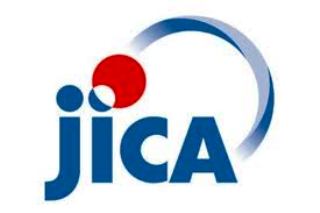Japan donates $38m to enhance Sudan peace efforts
March 7, 2013 (KHARTOUM) – Nearly $38m has been earmarked by the Japanese government to help the United Nations and other international organisations in efforts to consolidate peace in Sudan.
 The contribution, the Japanese embassy said in a statement, comes from its supplementary budget for the 2012 financial year, and is expected to be used to respond to the emergency appeals especially in the conflict-affected areas of Sudan.
The contribution, the Japanese embassy said in a statement, comes from its supplementary budget for the 2012 financial year, and is expected to be used to respond to the emergency appeals especially in the conflict-affected areas of Sudan.
“The Government of Japan regards Sudan as one of the most important countries in the world since peace and stability of Sudan is not only the issues for the people of Sudan, but the common concerns for international community for the regional prosperity and development of Africa as a whole,” partly reads the statement from its Khartoum-based embassy.
The donation, the statement further says, will be split among the various UN agencies and development partners working in the conflict regions, with the UN refugee agency (UNHCR) taking almost half of the funds. Others include, the UN Children’s Fund (UNICEF), International Organisation for Migration (IOM), UN Development Programme (UNDP), World Food Programme (WFP) and the International Committee for the Red Cross (ICRC).
Over the years the Japanese government’s aid arm (JICA) has supported sectors such as agriculture, water and sanitation, health care, vocational training, and capacity development.
In addition, the embassy said in a statement, its “Grant Assistance for Grassroots Human Security” has supported various non-governmental organisations projects, which have reportedly contributed to mitigation of the tension in Sudan’s conflict-affected areas.
While fighting has been ongoing in Sudan’s western Darfur region since 2003, another conflict started with the Sudan People’s Liberation Movement – North in South Kordofan, and Blue Nile June and September 2011 respectively.
Hundreds thousands of civilians have been displaced to other areas inside the country or fled to neighbouring countries like Chad, Ethiopia and South Sudan.
(ST)
